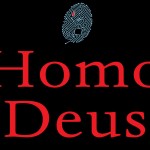I have been meaning to blog for a while about David Litwa’s book Iesus Deus. It offers a compelling case for acknowledging that Judaism’s distinctive emphasis on exclusive worship did not exclude the possibility of other figures being “divinized.” Here are some quotes and excerpts, to whet your appetite (since I read the book on my Kindle, I don’t have page numbers):
My argument asserts not that early Christians borrowed their divine christology from Hellenistic theology, but that certain conceptions of deity were part of the “preunderstanding” of Hellenistic culture—a culture in which Jews and Christians already participated…
[T]he gods of popular theology do not play by human moral rules. They are less immoral than amoral—or rather, “supra-moral.” Their vast power and prestige puts them in a category above human beings. Thus they do not abide by (or rather are not limited by) human moral conventions. Therefore to accuse a god of injustice is to misunderstand what a god is: neither just nor unjust, but something above human justice—like a force of nature…
[H]ellenized peoples in the ancient world (including the author of Mark) would not necessarily have recognized certain theophanic elements as specifically Greek or Jewish….The Jews did not borrow these symbols from the Greeks, nor did Hellenes plagiarize the Hebrew Scriptures. Such symbols were not the proper possession of any particular ethnicity or subculture in the Mediterranean world. From Spain to Palestine, they formed a kind of koine signifying manifest divinity…
In the ancient world, some of the gods who shone so brightly were also human kings…If Moses mediated divine reality on the mountain, it is because he was himself deified…Philo’s “Mosaic epiphany” indicates that a Mosaic background to Mark’s transfiguration confirms rather than rules out the revelation of Jesus’ divinity. If Jesus’ transformation on the mountain was Mosaic, it was also divine…
Mark’s understanding of Jesus as “son of God” is—as in emperor worship—less a matter of being than of rank…Human participation in the divine nature was not an impossible thought in the Judaism of the first century…For both Mark and Philo, neither Moses nor Jesus were revealed as gods in and of themselves. Both figures, rather, were enveloped in the nimbus of a higher deity…For Mark’s Jesus, just as for Philo’s Moses, there is only one divinity—Yahweh (the “Existent”); thus those who are divine share the divine reality of the Jewish high God…
[Jesus] does not become an independent god, but is integrated into the preexistent deity of Yahweh…The author of Phil. 2:6-11 knew, presumably, that those who bear a particular god’s name also bear that god’s status…In the Greco-Roman world, the tradition of theonymy implied deification. The deifying implications of theonymy, I believe, were assumed and exploited by early Christians who exalted Jesus in their liturgy and literature…In the framework of Mediterranean culture—as well as the narrative frame of Phil. 2:9-11 itself—Jesus had become God’s vice-regent and a god himself…
The dismantling of the Judaism/Hellenism divide calls for a new understanding of Judaism as part of a larger world,…Given current levels of historical knowledge, “borrowing” (even if highly creative) cannot be viewed as the primary model of historical influence. Today scholars generally recognize that most genetic links between ideas are often impossible to trace (or test) due to the complexity of cultural interaction and the shear inventiveness of the human mind. The logic of influence ought instead to be rooted in a pervasive and assertive Hellenistic culture that tended to foster shared notions of divine traits in the minds of ancient Romans, Jews, Syrians, Phrygians, Samaritans, and the many other Hellenized ἔθνη…
In Christian writings—indeed, in the person of Jesus himself—the theology of the Greeks and Romans did not die. In Christ, it rose again.
This is just one of several books by Litwa that relate to this topic and which offer insightful arguments grounded in the interpretation of the primary evidence.


















